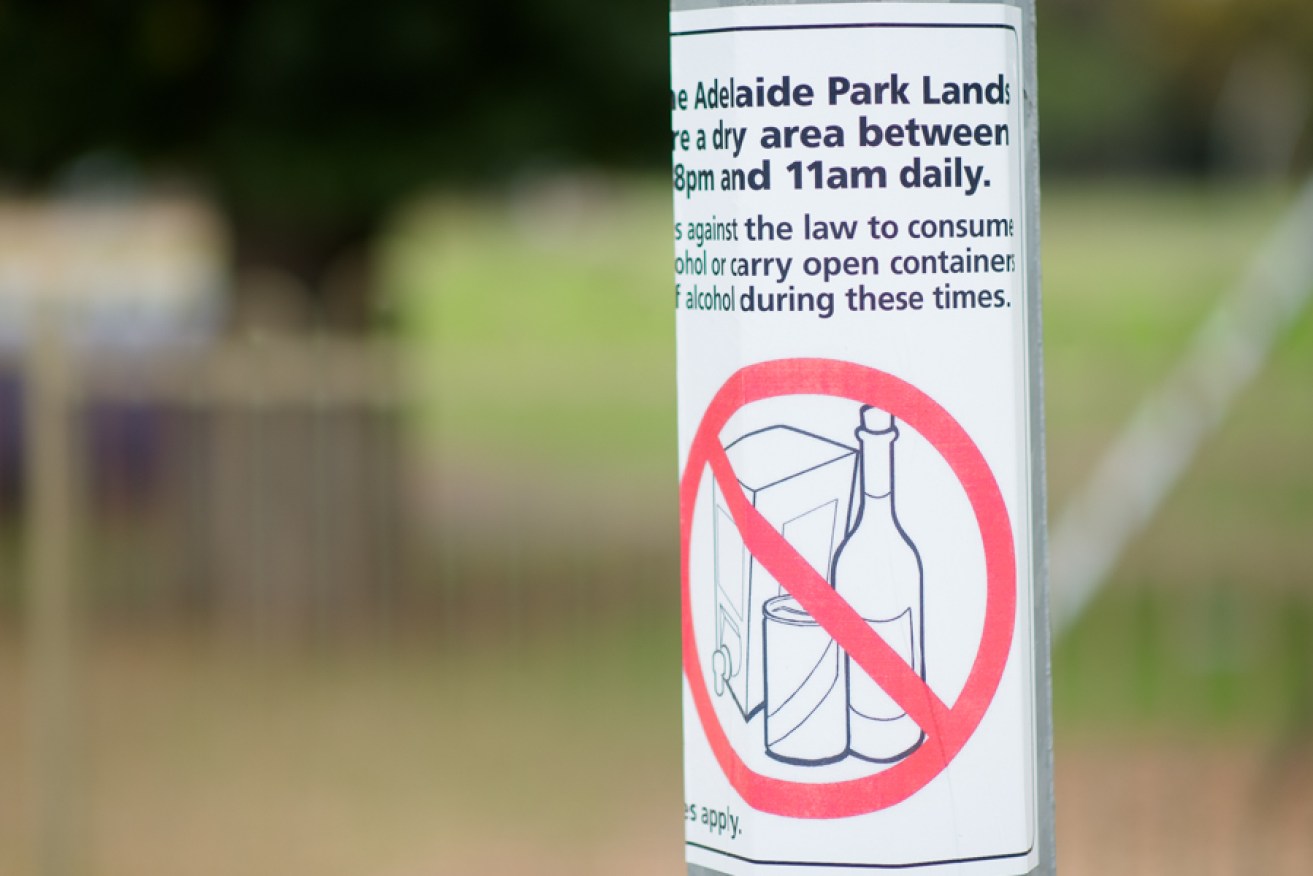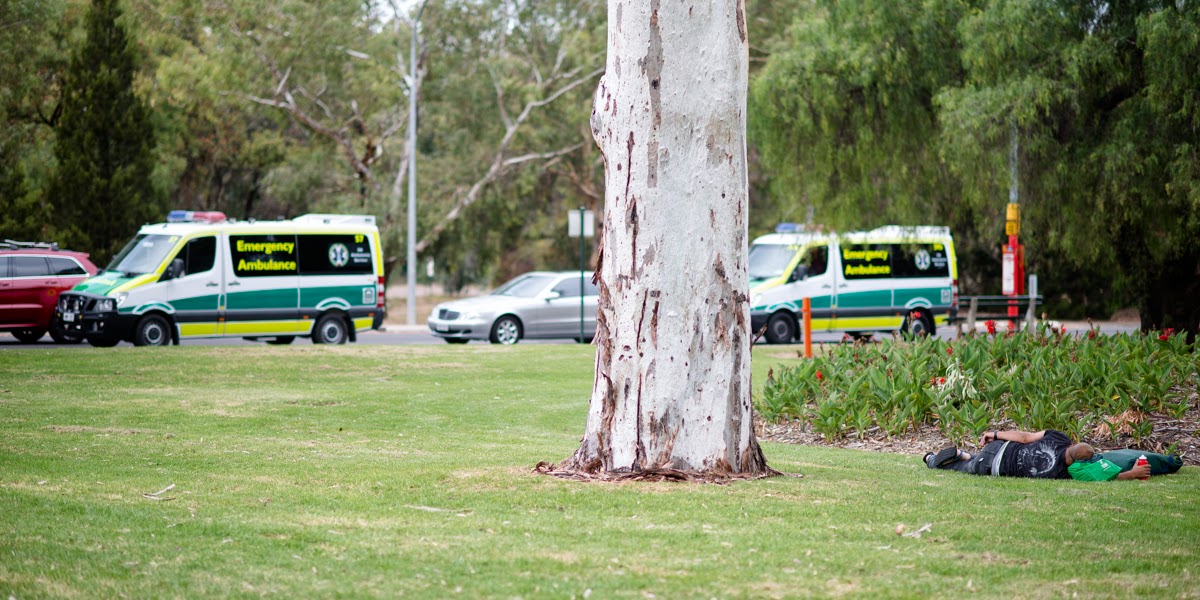Council declares parklands “nightmare for city residents” solved
The Adelaide City Council has endorsed another 12-month extension to the alcohol-free zone in the parklands, declaring that the problem of anti-social behaviour near city residents has been “solved”.


Photo: Nat Rogers / InDaily
A council committee voted this week to extend the dry zone – which prohibits the consumption of alcohol from 8pm to 11am the following day – for another 12 months.
Central Ward councillor Houssam Abiad told the meeting that while mental illness, substance abuse and anti-social behaviour in the parklands had not reduced as a result of the dry zone, the policy had ended a “nightmare” for city residents living near the south parklands.
“We’re not solving the problem of the anti-social behaviour,” said Abiad.
“[However] the problem is solved for the residents.
“We’ve not had one of our residents sitting here complaining.”
Abiad said it would be unwise to “create another nightmare for residents” by removing the booze ban.
The vote was in response to a report from health, police and social service officials, presented to the committee meeting, showing groups of people with drug and alcohol dependencies who had been congregating mostly in the southern parklands had been dispersed to different areas across the parklands, and beyond, since the dry zone was introduced.
The report of the Senior Officers’ Group recommended the dry zone be retained for another year as a “transitional arrangement” while other strategies – including a promising program that waives dry-zone breach fines in return for entering drug and alcohol rehabilitation – take effect.
The people who want to leave the drinkers … out in the parklands are the uncaring ones.
Area Councillor Anne Moran suggested it was a good thing that the people in the parklands had been moved away from city residences.
Those living along South Terrace, she said, had been “living in what literally was a war zone” before the dry area was implemented.
“The dry zone has not failed in what it’s meant to do,” said Moran.
She suggested that in “a few years”, without the dry zone, “every drinker down there would be dead”.
“Nobody says that the dry zone is more than a blunt instrument,” she said.
“[However] it’s easy to take the high moral ground.
“The people who want to leave the drinkers … out in the parklands are the uncaring ones.”
Social service agencies have argued in the past that the dry zone would move alcohol-fuelled violence into the suburbs and out of reach of the services designed to help them.
Lord Mayor Martin Haese said the dry zone was a “vexing” policy issue, but that that some of Moran’s arguments had “a lot of merit”.
He said the dry area would have to continue “in absence of any definitive proof … of what material impact [ending the dry zone would have]”.
The extension of the dry zone is going to be putting more people at risk for another year.
North Ward councillor Phil Martin – the only member who voted against asking for the extension of the dry zone – said it had made problems worse for vulnerable people in the parklands.
“The dry zone has moved the problem … [but] the problem has got worse, not better,” he said.
“Moving vulnerable people … actually increases the risk of harm to them.
“The extension of the dry zone is going to be putting more people at risk for another year.”
Martin cited statistics from the report, showing alcohol-related admissions to the Royal Adelaide Hospital were at a three-year high.
The report (available here, beginning page 20) says that the number of Aboriginal and Torres Strait Islander people who had presented to the hospital for alcohol intoxication, dependence or psychosis had increased from 38 presentations during the period from July to September 2013, to 91 from January to March this year.
He said the residents of South Terrace were “not the people whose lives are at risk”.

Photo: Nat Rogers / InDaily
But Moran said the dry zone was serving its purpose by stoping anti-social behaviour near city residents and businesses, and that deeper problems were for other levels of government to address.
“If the problem of annihilation drinking [continues] that’s squarely at the foot of the State Government,” she said.
She added that she believed the dry zone should be implemented permanently – and that “until global mental illness … is cured” the dry zone would have to remain in force.
South Ward councillor Alex Antic told the meeting residents living south of the city were “very sympathetic” to the plight of vulnerable people that use the parklands.
He agreed the dry zone was a “blunt instrument”, but said that it had made residents feel safer.
Antic said mental illness and substance abuse were “totally outside the remit of local government”.
“I’ve never understood why it is that [displacement] is such a bad thing,” he said.
The council will reconsider its own recommendation to request the dry zone extension at a meeting next week.




